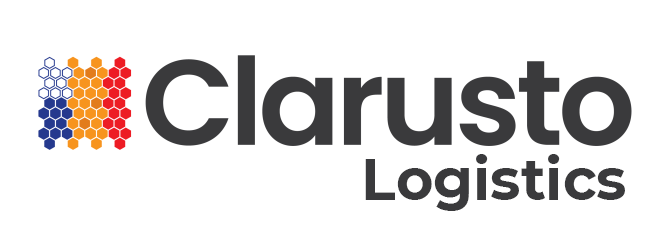Discover the significance of cultural competency in global logistics and how it enhances supply chain management and international collaboration. Introduction: Cultural competency in logistics is crucial in today’s globalized economy. Logistics companies must navigate a diverse, interconnected world where success depends on effective communication and collaboration across cultures. Understanding cultural competency is becoming increasingly essential for logistics professionals to thrive in global supply chains. Understanding Cultural Competency in Logistics Cultural competency in logistics refers to the ability to effectively interact, communicate, and work with individuals from different cultures. It involves understanding the customs, values, norms, and communication styles of various regions and adjusting one’s approach accordingly. In the context of Cultural Competency in Logistics, this means understanding the cultural factors that influence decision-making, negotiations, and even everyday business operations. From managing supply chains that stretch across continents to handling client relationships in different markets, the need for cultural competency in logistics is integral to ensuring smooth logistics operations. Misunderstanding cultural norms can result in delays, strained relationships, and ultimately lost business opportunities. Emphasizing cultural competency in logistics helps prevent these issues and fosters more effective collaboration across borders. The Role of Cultural Competency in Global Logistics As companies expand into international markets, cultural competency in logistics becomes essential for managing global logistics operations across diverse cultural landscapes. Whether it’s navigating the complex customs regulations in Asia, negotiating contracts in Europe, or handling shipping operations in Latin America, cultural nuances play a significant role in determining success. Failing to appreciate these differences in cultural competency in logistics can lead to miscommunication, mistrust, and operational inefficiencies. For instance, some cultures prioritize building personal relationships before discussing business, while others prefer a more transactional approach. Misinterpreting such preferences can hinder negotiations or create tensions with international partners. Furthermore, in a world where global supply chains are more interconnected than ever, understanding regional work ethics, communication protocols, and holidays can prevent delays and improve the overall efficiency of the logistics network. The Impact of Cultural Differences on Supply Chain Management Cultural differences also play a major role in supply chain management. Considerations such as time orientation, hierarchy, and decision-making processes differ across cultures and can impact the speed and efficiency of global logistics operations. For example, in some regions, businesses adhere to a more hierarchical structure where decisions are made by top-level executives, resulting in a slower decision-making process. In other regions, decisions are made more collaboratively, allowing for quicker turnarounds. Understanding and respecting these differences can help avoid frustration and improve collaboration. Moreover, language barriers are another significant aspect of cultural competency. Miscommunication due to language differences can lead to costly errors in shipping, documentation, and even regulatory compliance. Hiring multilingual staff or investing in language training for employees can help overcome this challenge, ensuring that communication flows smoothly across borders. How to Build Cultural Competency in Logistics Building cultural competency in logistics team involves more than just learning about different customs and practices. It requires a proactive approach to fostering an inclusive work environment where cultural differences…
Posts TaggedSupply Chain Management
Machine Learning Revolutionizes Cargo Tracking Systems
INTRO In the rapidly evolving world of logistics and supply chain management, technology is playing an increasingly pivotal role. One of the most transformative technologies reshaping the landscape of cargo tracking systems is Machine Learning. With its ability to learn from vast amounts of data, make predictions, and provide actionable insights, machine learning is revolutionizing how goods are tracked, managed, and delivered globally. As a result, businesses are experiencing improved efficiency, reduced costs, and more accurate delivery timelines. The Evolution of Cargo Tracking Systems Before delving into how technology is transforming cargo tracking, it’s essential to understand how these systems have evolved. Historically, tracking shipments involved manual data entry, phone calls, and paper trails, leading to inefficiencies and delays. Over time, systems improved with the advent of RFID technology, GPS tracking, and real-time monitoring. However, despite these advancements, there were still gaps in predicting delays, optimizing routes, and managing logistics, leaving room for further innovation. Advanced analytics has stepped in to address these challenges, providing powerful tools for predictive analytics, route optimization, and real-time decision-making in cargo tracking. Enter Machine Learning (ML) – a subset of artificial intelligence (AI) that uses algorithms to analyze large datasets, recognize patterns, and make predictions. Unlike traditional systems that rely on pre-programmed instructions, machine learning systems can learn from the data they process, continually improving their accuracy and performance. How Machine Learning Enhances Cargo Tracking 1. Predictive Analytics for Delays and Disruptions One of the most significant challenges in cargo tracking is predicting delays due to factors like weather conditions, traffic, port congestion, or unforeseen circumstances such as natural disasters. Traditional systems often react to these issues after they have occurred. However, advanced analytics can analyze historical and real-time data to predict potential disruptions before they happen. For example, by examining patterns in previous deliveries, these systems can anticipate how weather conditions might affect a particular route, allowing businesses to make proactive adjustments. With these technologies, companies can improve forecasting accuracy and minimize delays by making data-driven decisions based on predictive insights. By predicting these delays, logistics companies can reroute shipments, adjust schedules, or notify customers ahead of time, enhancing overall supply chain reliability. 2. Route Optimization Another critical area where advanced analytics is making a substantial impact is route optimization. Logistics companies face constant pressure to deliver goods quickly and cost-effectively. Analytics algorithms can analyze various factors, such as traffic conditions, fuel consumption, and weather patterns, to suggest the most efficient delivery routes. This not only speeds up delivery times but also reduces fuel costs and lowers carbon emissions. In addition, machine learning systems can continually update routes in real time, adjusting for changing conditions. For example, if a major highway suddenly becomes congested, the system can reroute trucks automatically, ensuring minimal delay. 3. Enhancing Fleet Management Fleet management is a crucial aspect of cargo tracking, involving the monitoring and maintenance of vehicles that transport goods. Machine learning can improve fleet management by predicting when a vehicle might need maintenance based on its performance history, fuel consumption, and…
Simplifying Transportation with Clarusto Logistics: A Holistic Approach
In today’s fast-paced and competitive business landscape, efficient logistics management is not just advantageous but essential for sustained success. Companies across various industries rely on streamlined logistics operations to minimize costs, improve delivery times, and enhance overall customer satisfaction. Clarusto Logistics stands out as a leader in this field, offering a comprehensive approach that addresses the intricate logistics needs of modern businesses. This blog post delves into how Clarusto Logistics diverse services, technology-driven solutions, extensive expertise, customer-centric philosophy, and commitment to sustainability combine to optimize logistics operations effectively Comprehensive Logistics Solutions Clarusto Logistics provides a wide range of services designed to meet the specific needs of different industries. They offer powerful solutions in: 1. Warehousing and Distribution: Good storage and distribution methods are important for keeping supply chains running . Clarusto Logistics provides top-notch storage facilities and improved distribution networks to make sure products get to their places and in great shape. 2. Transportation Management: Handling transportation well is key to reducing costs and making delivery better. Clarusto Logistics uses high-tech transportation management systems (TMS) to make route planning, shipment tracking, and carrier handling better, improving logistics as a whole. 3. Freight Forwarding: International shipping has tough issues. Clarusto Logistics makes it easier by providing all services needed for moving goods taking care of customs, paperwork, and making sure goods arrive on time in other countries. 4. Supply Chain Management: A well-run supply chain is needed for business success. Clarusto Auctions has overall services for supply chains connecting buying goods, making goods, and sending them out to increase work speed and lower wait times. 5. E-commerce Logistics: As online shopping grows fast good e-commerce logistics are important. Clarusto Logistics delivers focused services designed for the specific needs of online stores, which include completing orders keeping track of inventory, and providing delivery to customers’ doors. Technology-Driven Approach Clarusto Logistics sets itself apart by its creative application of technology to improve logistics operations: 1. Real-time Tracking and Monitoring: By using GPS and RFID technologies, Clarusto Logistics offers visibility into shipments at any moment letting businesses monitor their goods across the supply chain. 2. Automated Documentation and Paperwork: Automation reduces human mistakes and quickens administrative tasks ensuring easy customs passage and adherence to rules. 3. Data Analytics for Optimization: By applying big data analytics, Clarusto Logistics creates useful insights to better routes, foresee demand trends, and find ways to cut costs. 4. Cloud-Based Collaboration: Cloud platforms make it easy for people involved to communicate and work together making logistics management more clear and effective. Expertise and Experience With years of experience in the logistics field, Clarusto Logistics has a team of seasoned experts who know the complexities of international supply chains well. Their expertise provides: 1. Customized Solutions: Logistics solutions tailored to meet specific company needs and challenges ensuring excellent performance and cost-effectiveness. 2. Proactive Problem-Solving: Identifying and solving logistics problems before they affect operations reducing disruptions and ensuring a smooth logistics flow. 3. Continuous Improvement: A commitment to constant refinement and upgrading of logistics processes with innovation…




